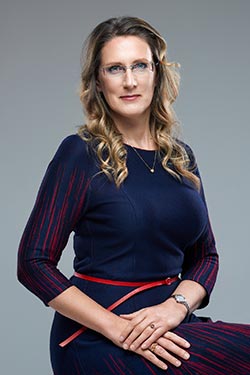RNDr. Jana Brotánková, Ph.D.
Physicist in Thermonuclear Fusion, Head of PlasmaLab@CTU, Faculty of Nuclear Sciences and Physical Engineering, CTU in Prague

Jana Brotánková studied at the Faculty of Mathematics and Physics at Charles University and developed her career at the Institute of Plasma Physics of the Czech Academy of Sciences, working on the CASTOR tokamak in a highly collaborative international environment. She then spent several years abroad (India, Australia) before returning to Prague to establish PlasmaLab@CTU, a laboratory focused on teaching diagnostics for thermonuclear fusion and became an integral part of fusion education at the Faculty of Nuclear Sciences and Physical Engineering. She is also passionate about science communication, serving on the board of the FuseNet, international fusion education network, and as the chair of the Czech Physical Society.
What is your area of expertise at CTU, and what do you enjoy most about your work?
My field is thermonuclear fusion, specifically the development of diagnostics for fusion reactors. Lately, I have also been focused on educating new fusion physicists and engineers. I absolutely love fusion physics and technology—it's an incredibly diverse field that spans multiple disciplines, from theory and modeling to experiments.
Fusion is a massive engineering challenge, and for me, it's like living inside a science fiction movie that is actually happening in reality.
Working with students at FNSPE CTU feels like a reward: they are usually sharp, highly motivated young people, and collaborating with them is a joy.
What led you to science?
Probably curiosity, a natural inclination for deep thinking, and a desire to understand how the world works. As a schoolgirl, I was fascinated by a popular astrophysics book by Jiří Grygar. While studying physics, I realized that some questions don't have simple answers—but by that time, I was already completely immersed in the field, like a fish in water.
How do you balance your personal and professional life?
That’s not an easy question. Once family is involved, things become more complicated. But then again, balancing family and career is never truly easy in any profession. Sometimes, you have to step outside of conventional norms and surround yourself with people who see women in science not as something unusual, but as completely normal human beings.
Would you recommend a scientific career to high school girls? If so, why?
If they feel it’s their path, then absolutely. Science is a beautiful journey, full of challenges, where you never stop learning. Personally, I am very glad I chose this path—I have found a home in the academic world.